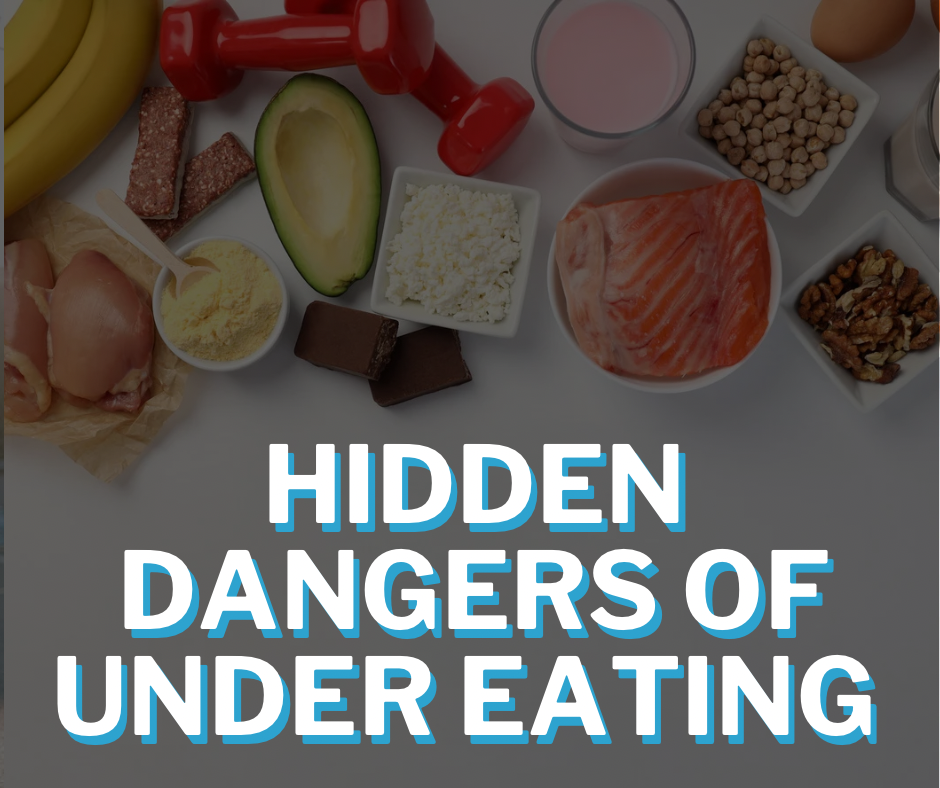Understanding the Hidden Dangers of Undereating
While overeating often dominates health discussions, under eating can be just as common and harmful. Food is our body’s fuel, and not consuming enough can significantly impact your health and wellbeing. Our bodies need adequate nutrition to function correctly, especially if you’re active and exercise regularly. Although maintaining a calorie deficit is a proven way to lose weight, drastically cutting calories can be dangerous, causing your body to signal that something is wrong.
Here are eight signs that you might be undereating:
Fatigue
Feeling constantly tired is a clear sign of undereating. Our energy comes from the food we eat, and our bodies need a certain number of calories to function properly, including for essential processes like breathing and digestion, known as your basal metabolic rate (BMR). Undereating can drastically lower energy levels, causing physical and mental fatigue, which can impair daily functioning and quality of life. Studies also show that undereating and high fatigue levels can negatively affect physical fitness and sporting performance.
Weakened Immune System
Not consuming enough calories or a balanced diet can deprive your body of the nutrients needed to maintain a robust immune system. This can make you more susceptible to colds and illnesses, and recovery may take longer due to a weakened state.
Poor Hair, Skin, and Nail Health
When calorie intake is restricted, the body prioritizes vital functions over maintaining healthy hair, skin, and nails. Essential vitamins and minerals are crucial for their health, and deficiencies can result in brittle, dull, and dry hair, skin, and nails.
Difficulty Losing Weight
Although undereating can cause quick weight loss, it is not sustainable and can harm your health in the long run. Prolonged undereating can slow your metabolism as your body enters energy-conservation mode, making it harder to lose body fat and improve body composition over time.
Constipation / Poor Digestion
Undereating leads to less food in the digestive tract, resulting in fewer bowel movements and constipation. A poor diet combined with undereating can slow metabolic rates, causing hard-to-pass stools.
Difficulty Sleeping
Adequate sleep is essential for physical and mental recovery. Undereating can cause restless sleep and
frequent awakenings, preventing your body from completing its restorative processes, leading to feelings of
grogginess and fatigue.
Cold Body Temperature
Maintaining body temperature requires adequate fuel. A severe reduction in calorie intake can lower specific thyroid hormones responsible for body temperature maintenance. If you often feel cold, it might be time to increase your daily calories.
Moodiness / Irritability
Prolonged undereating can increase irritability and moodiness. The brain needs fuel to regulate emotions, so mood swings may indicate insufficient calorie intake. If you find yourself easily irritated, it can be due to undereating.
Undereating is a common issue, with a large contribution of poor advice coming from social media’s glamorisation of diets and restrictive eating. If you suspect you might be undereating or are unsure about your nutritional needs, consult a qualified health professional to assess your individual requirements.
Here, you can get an idea of how many calories is required for you each day.
Fuel up with products from our Orbit Nutrition range to ensure you’re meeting your nutritional needs!
Key Takeaways:
- Food is fuel, and eating less than your body requires can harm your health and wellbeing.
- Understanding your basal metabolic rate is crucial to ensure you meet your body’s basic physiological needs.
- Consult a health professional if you think you may be undereating and experiencing related symptoms.
